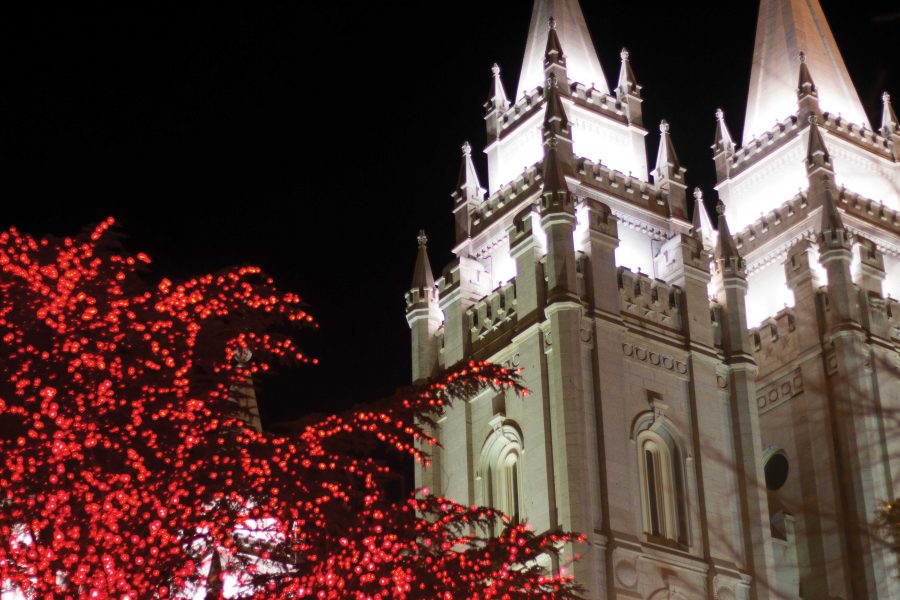In the summer of 2017, a man took to Facebook to air his political grievances. While reminiscent of many Facebook feeds, this post was different. First, it was written by former state Senator Steve Urquhart, a Republican from Saint George who served 16 years in state legislature, and second, his ire was directed at the Church of Jesus Christ of Latter-day Saints — arguably the most politically powerful entity in the state of Utah. Urquhart wrote, in part, “I have no problem with the Church lobbying government… My issue is HOW the Church lobbies … It doesn’t bother lobbying rank-and-file members or going on record in committee meetings like other political participants do — instead, it whispers to a few members of Republican leadership, and things magically happen.” As the LDS church is a supermajority in Utah state government — where nine of every 10 legislators is a member of the Church — Urquhart’s characterization of the LDS church’s tactics on Capitol Hill is likely as realistic as it is uncomfortable. However, the true consequence of this religious supermajority in Utah’s legislature is more than discomfort, it can threaten the democratic integrity of the state as specific legislative issues become moral instead of political for many LDS lawmakers.
For the past three years, the Utah legislature has failed to give existing hate crimes statutes teeth. Most recently SB86, which modifies the Utah Criminal Code to provide penalty enhancements for offenses committed against individuals selected because of their “ancestry, disability, ethnicity, gender, gender identity, national origin, race, religion or sexual orientation,” died in committee despite the fact that hate crime within Utah continues to rise. Some lawmakers attribute the bill’s failure to a statement released by the Church during this legislative session which leveraged previous protections afforded to LGBTQ Utahns to argue against additional protections may upset the balance between gay rights and religious liberty. One of the SB86’s backer’s, Equality Utah Executive Director Troy Williams, told reporters at the time, “I would love for [the bill] to pass this year, but we know what happens when the LDS Church makes a statement about legislation. It changes the course.”
Utah recently legalized medical marijuana, however, H.B. 3001, the compromise reached between lawmakers, patient advocates, and the measure’s opponents, bears little resemblance to the medical marijuana initiative passed by voters in November. One of the most outspoken opponents of the original proposition, the LDS church released a statement celebrating the compromise, “The Church of Jesus Christ of Latter-day Saints welcomed the opportunity to participate in a broad community effort to alleviate pain and suffering.” However, the Church was likely the lobbying force in the private negotiations that led to fewer cannabis pharmacies and disqualified Utahns with most autoimmune diseases from utilizing medical marijuana to treat their symptoms, effectively reducing overall patient access to cannabis. Christine Stenquist, an advocate for medical marijuana, spoke out against changes to the initiative, “When I saw [Proposition 2] undermined so quickly … I started to wonder: Is the initiative process in Utah just a suggestion box? Are our votes really meaning anything in this political process?”
During the current legislative session, Representative Merrill Nelson has proposed a bill which will prevent gender changes being made to Utah birth certificates. Representative Nelson, a member of the LDS church, claims that this legislative proposal has not been impacted by his religious beliefs, however, it comes after a General Conference talk in which Church leader Dallin H. Oaks declared, “Gender is eternal.” Nelson defended his attack on the transgender community with a statement which read, “An individual’s sex is determined at conception by chromosomal make-up and is not subject to change or self-determination later in life.” However, this logic is questionable, as pointed out by Senator Todd Weiler who tweeted, “We change birth certificates every day in Utah. After a successful adoption, the state issues a new birth certificate showing the adopted parents as the birth parents — even though they weren’t even there.”
Utah is the only state whose legislature is currently dominated by a single, unified religion, giving the Church of Jesus Christ of Latter-day Saints de facto control of state legislature. The Church exercises this unprecedented political power to prevent or change legislature that they disagree with, utilizing its many platforms of communication to influence lawmakers. While it can be easy for members of the LDS church to dismiss its influence as a good thing for our state and nation, this is simply untrue as it threatens the overall integrity of our political institutions. By framing legislative issues from medical marijuana to enforcing hate crime statutes to gender changes as moral issues, the Church forces lawmakers to choose between their constituents and their God. In the words of former Senator Urquhart, a member of the LDS church himself, “This undemocratic control is a primary reason why the Church is not better regarded in Utah by non-members, despite the considerable good it does.”
This article is part of the Poynter College Media Project. Click here for more stories and information on the topic “Are U Mormon?”



